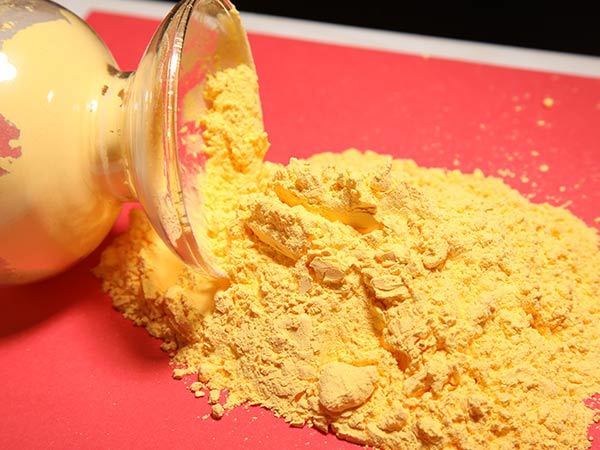language
English
العربية
বাংলাদেশ
Български
Hrvatski
Česky
Dansk
Nederland
 Esperanto
Esperanto
Slovenski
Filipino
Suomi
Français
Maori
 Shqiptare
Shqiptare
Georgian
 Euskara
Euskara
Deutsch
Ελλάδα
ישראל
इंडिया
Magyarország
Ísland
Indonesia
Irlanda
Italia
日本語
Sovensko
Հայաստան
한국
Kyrgyz
ປະເທດລາວ
 Zulu
Zulu
Latvian
Lithuanian
Luxembourgish
 Latinus
Latinus
Macedonian
Малайская
Maltese
Монгол улс
 Cymraeg
Cymraeg
ဗမာ
 தமிழ்
தமிழ்
नेपाल
Norge
ایران
Polska
Portugal
România
Российская
Србија
 Slovak
Slovak
Србија
 Slovak
Slovak
Bosanski
Slovenian
Беларус
España
Sverige
Точик
ประเทศไทย
Türk
Azərbaycan
Uzbek
 Afrikaans
Afrikaans
Việt Nam
Understanding NC Foaming Agents for PVC Foam Profiles: A Comprehensive Guide
Release time: 2025-01-13
In the realm of chemical additives, NC foaming agents play a critical role in the production of PVC foam profiles. These agents are integral to the manufacturing process, facilitating the creation of lightweight, durable, and versatile materials widely used in various applications, from construction to automotive components.
NC, or nitrogen-containing, foaming agents are known for their ability to produce a fine cellular structure in PVC foams. When incorporated during the extrusion or molding process, these agents decompose to release gas, resulting in the expansion of the material. This expansion not only aids in reducing weight but also enhances the thermal insulation properties of the final product.
The use of NC foaming agents in PVC foam profiles brings several advantages. Firstly, they contribute to the overall cost-effectiveness of production by allowing manufacturers to reduce the amount of raw material needed while still achieving the desired mechanical properties. The lightweight nature of the foamed profiles also translates to lower transportation costs and easier handling during installation.
Moreover, NC foaming agents improve the physical properties of PVC foams. The fine cell structure created during foaming can lead to enhanced impact resistance, flexibility, and surface finish. These characteristics are particularly beneficial in applications requiring robust yet lightweight materials, such as in the production of panels, insulation boards, and decorative elements.
In addition to their mechanical benefits, the environmental impact of using NC foaming agents is also noteworthy. Many modern formulations are designed to be more environmentally friendly, with a focus on reducing volatile organic compounds (VOCs). This aligns with the industry's shift towards sustainability and compliance with environmental regulations.
As manufacturers increasingly seek innovative solutions to meet market demands, the role of NC foaming agents in PVC foam profiles is becoming more prominent. Their ability to enhance material properties while maintaining cost efficiency makes them invaluable in the competitive landscape of the chemical industry.
In conclusion, understanding the function and advantages of NC foaming agents is essential for professionals involved in the production and application of PVC foam profiles. By leveraging these agents, companies can achieve superior product performance, cost savings, and a reduced environmental footprint, positioning themselves effectively in the market. As the industry evolves, ongoing research and development will continue to refine these agents, ensuring they meet the growing expectations of customers and regulatory bodies alike.
NC, or nitrogen-containing, foaming agents are known for their ability to produce a fine cellular structure in PVC foams. When incorporated during the extrusion or molding process, these agents decompose to release gas, resulting in the expansion of the material. This expansion not only aids in reducing weight but also enhances the thermal insulation properties of the final product.
The use of NC foaming agents in PVC foam profiles brings several advantages. Firstly, they contribute to the overall cost-effectiveness of production by allowing manufacturers to reduce the amount of raw material needed while still achieving the desired mechanical properties. The lightweight nature of the foamed profiles also translates to lower transportation costs and easier handling during installation.
Moreover, NC foaming agents improve the physical properties of PVC foams. The fine cell structure created during foaming can lead to enhanced impact resistance, flexibility, and surface finish. These characteristics are particularly beneficial in applications requiring robust yet lightweight materials, such as in the production of panels, insulation boards, and decorative elements.
In addition to their mechanical benefits, the environmental impact of using NC foaming agents is also noteworthy. Many modern formulations are designed to be more environmentally friendly, with a focus on reducing volatile organic compounds (VOCs). This aligns with the industry's shift towards sustainability and compliance with environmental regulations.
As manufacturers increasingly seek innovative solutions to meet market demands, the role of NC foaming agents in PVC foam profiles is becoming more prominent. Their ability to enhance material properties while maintaining cost efficiency makes them invaluable in the competitive landscape of the chemical industry.
In conclusion, understanding the function and advantages of NC foaming agents is essential for professionals involved in the production and application of PVC foam profiles. By leveraging these agents, companies can achieve superior product performance, cost savings, and a reduced environmental footprint, positioning themselves effectively in the market. As the industry evolves, ongoing research and development will continue to refine these agents, ensuring they meet the growing expectations of customers and regulatory bodies alike.
 sales@feihengchem.com
sales@feihengchem.com
 +8615665855931
+8615665855931 中文
中文 English
English España
España











